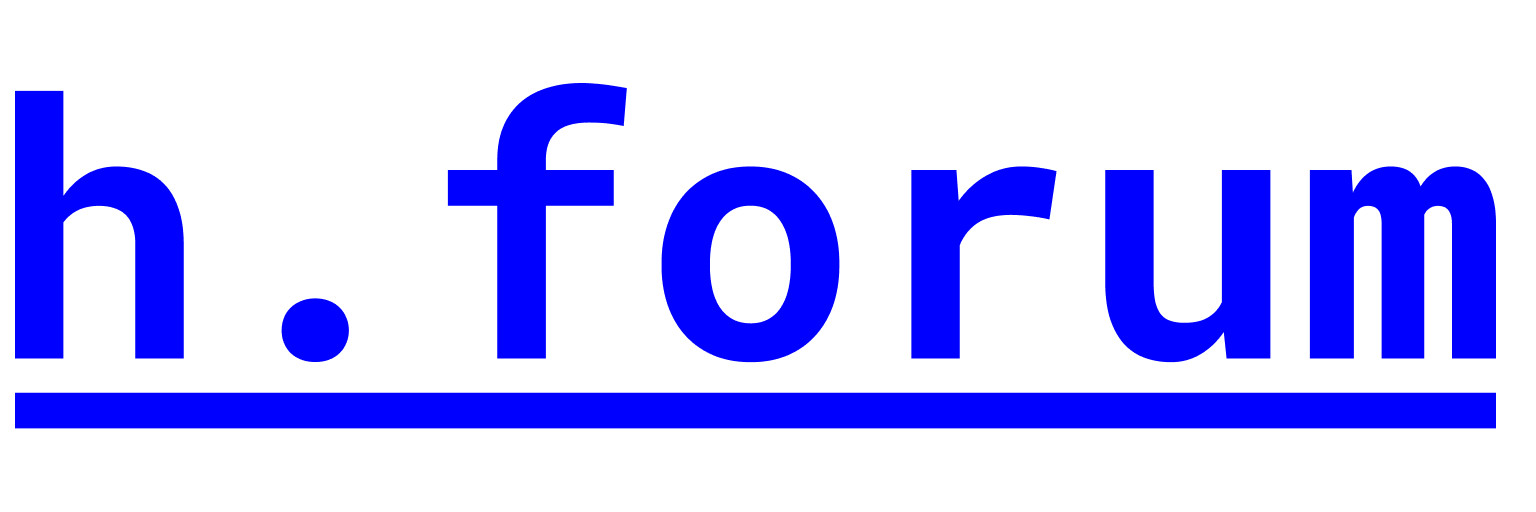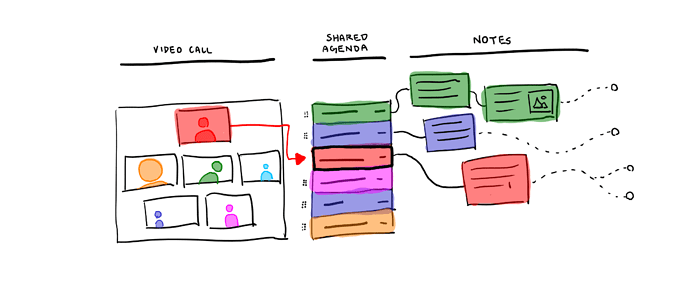Also, I’ve been wondering about creating “structured conversation”, essentially creating a shared agenda or outline of discussion topics and presentations which guides conversation and keeps people on-track. Particularly in a peer-to-peer medium, there ought to be a way to collectively plan what you’re going to discuss, and perhaps also to make shared, time-stamped notes throughout the conversation.
I think that an effective system of structured conversation would help provide a level of structure that in regular classrooms is typically provided by the teacher. But how might you collectively create a plan or agenda for discussion? Two ways:
- Some meetings are already partially structured from the course description (for example: week 3 includes presentations with rapid-fire writing sessions in-between)
- Throughout the week(s) perhaps you can gather little highlights, questions, or ideas that you wish to bring up at future meetings
This is sort of an extension of one of the concepts from my Micro Learning Futures challenge:
Before ‘starting’ the meeting you sped a few minutes collectively rearranging these topics and blocks of time to plan out the next hour or two of discussion. This can also help to give everyone a voice in meetings, if everyone brings some ideas to the meeting, you can make sure from the beginning that everyone will have a chance to share ideas or questions with the group. It also gives the benefit of being able to look ahead and start thinking about how you might answer a question before it gets brought up!
Definitely wonder if there’s any research on creating these kinds of “shared outlines” of for structured discussion over video calls and how they affect group dynamics. I see a lot of potential in creating more structured conversations like this (and just because it’s structured doesn’t mean you can’t schedule time for less-structured discussion), but I’d definitely like to weigh the pros and cons in practice.


